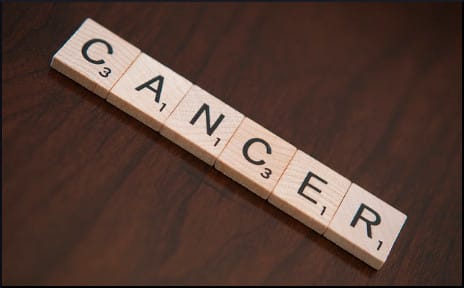
The director of the National Cancer Institute has estimated that as many as 20% of the cancer cases in America would not exist if the population were not so obese.
Only a few months ago, the United Kingdom was shocked by a report published by Cancer Research UK and the UK Health Forum, which extrapolated from current trends to predict that by the year 2035, almost three-quarters of the nation’s people will be obese. Among many other undesirable consequences, this would probably mean 700,000 new cancer cases and the collapse of the National Health Service.
Israeli researchers at Tel Aviv University, who had access to 18 years worth of records for more than one million males, discovered a clear link between childhood BMI (body mass index) and the later development of urothelial and colorectal cancers in adulthood.
Danish researchers, who studied the records of well over 300,000 adults of both sexes, discovered:
Adults who were obese as children are at increased risk for liver cancer… The study authors calculated that at age 7, the risk of developing hepatocellular carcinoma increased by 12 percent for every one-point increase in BMI. By age 13, that risk increased to 25 percent.
The Lancet has reported that obesity-related cancer is more likely to affect women than men, “largely due to endometrial (womb/uterus) and post-menopausal breast cancers.” Cancer Research UK says:
Obesity increases a woman’s risk of developing at least seven types of cancer – including bowel, post-menopausal breast, gallbladder, womb, kidney, pancreatic and oesophageal cancer.
For men, the colon and kidneys are more likely to be the site of a malignancy. Or the gullet, also known as the esophagus. This structure, which connects the throat with the stomach, is subject to being bathed in stomach contents when the patient — usually obese — suffers from acid reflux (commonly and erroneously known as “heartburn”).
As University of Southhampton surgeon and researcher Tim Underwood phrased it:
From a surgical point of view, we’re seeing a link between obesity and reflux and there is definitely a link between obesity and esophageal adenocarcinoma. So you could join the three dots together.
Of course, only men are susceptible to prostate cancer, and if they are obese or even just overweight when diagnosed, they are more likely to die, according to a Kaiser Permanente study. In fact, when it comes to the more aggressive forms of prostate cancer, the link between mortality from the disease is even more strongly linked with obesity.
Swedish researchers who studied the health records of 240,000 men say that “overweight teens may double their risk of developing bowel cancer by the time they reach middle age.” The raw fact of the connection is more evident than its precise mechanism:
Adult obesity and inflammation have been associated with an increased risk of bowel cancer, which is the third most common form of cancer among men, worldwide. However, less is known about how obesity and systemic inflammation might be influential during late adolescence.
Even the brain is not safe from threat, because overweight and obesity are closely related to the occurrence of meningioma, a type of brain tumor. This is according to a German meta-analysis which utilized information from “12 studies on body mass index and six on physical activity.”
The study author was Gundula Behrens, Ph.D., of the University of Regensburg. Science Daily reported:
Behrens said several biological processes could potentially link excess weight and increased risk of meningioma. For example, excess weight is associated with excess production of estrogen, and estrogens promote the development of meningioma. Also, excess weight is linked to high levels of insulin, which could promote meningioma growth.
Your responses and feedback are welcome!
Source: “Obesity linked to increased risk of leukemia,” EmaxHealth.com, 10/30/12
Source: “Obesity could lead to 700,000 more cancer cases in next 20 years,” TheGuardian.com, 01/07/16
Source: “Childhood obesity linked to bladder, urinary cancer,” Thaindian News, 07/24/12
Source: “Childhood Obesity May Raise Odds of Adult Liver Cancer,” HealthDay.com, 04/20/12
Source: “The Lancet Oncology: Overweight and obesity linked to nearly 500,000 new cancers in 2012,” EurekAlert.org, 11/25/14
Source: “Obese women 40 percent more likely to get cancer,” EurekAlert.org, 03/16/15
Source: “Obesity fuels rise in throat cancer in men,” DailyMail.co.uk, 06/17/13
Source: “Bowel Cancer: Overweight Teens Double Their Risk in Middle Age,” NatureWorldNews.com, 05/26/15
Source: “Being overweight may increase risk of type of brain tumor,” ScienceDaily.com, 09/16/15
Photo credit: davis.steve32 via Visualhunt/CC BY

 FAQs and Media Requests:
FAQs and Media Requests: 











